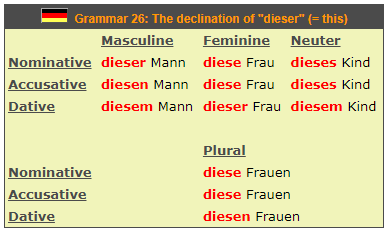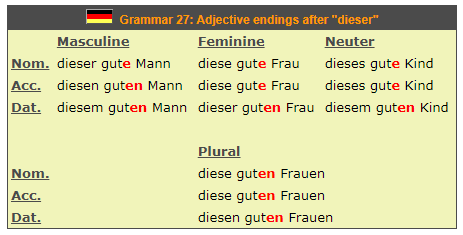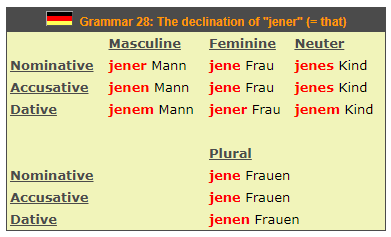
"Dieser" can also be used as a pronoun meaning "this one". It then of course takes the same endings as in the table above:
Welches Kind arbeitet gut? - Dieses.
(Which child works well? - This one.)
Welchen Mann siehst du? - Diesen.
(Which man do you see? - That one.)
You will have noticed that "dieser" takes the same endings as the definite article. It also takes the same adjective endings - the weak declension which we met in Chapter 5:


The demonstrative "jener"
Although the pronoun "jener" means "that", it is really only used in certain formal registers or to contrast with "dieser", which should otherwise be used to translate "that":
Ich will nicht dieses Armband kaufen, sondern jenes.
(I don't want to buy this bracelet, but that one.)
Willst du diese Brosche oder jene?
(Do you want this brooch or that one?)
"Jener" adds the same endings as "dieser" and the definite article and adjectives following "jener" will be in the weak declension:


 英语
英语 日语
日语 韩语
韩语 法语
法语 西班牙语
西班牙语 意大利语
意大利语 阿拉伯语
阿拉伯语 葡萄牙语
葡萄牙语 越南语
越南语 俄语
俄语 芬兰语
芬兰语 泰语
泰语 丹麦语
丹麦语 对外汉语
对外汉语

